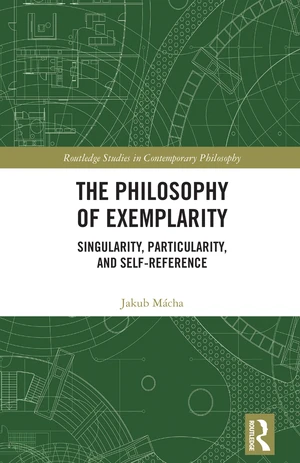This book offers an original philosophical perspective on exemplarity. Inspired by Wittgensteinâs later work and Derridaâs theory of deconstruction, it argues that examples are not static entities but rather oscillate between singular and universal moments. There is a broad consensus that exemplary cases mediate between singular instances and universal concepts or norms. In the first part of the book, Mácha contends that there is a kind of différance between singular examples and general exemplars or paradigms. Every example is, in part, also an exemplar, and vice versa. Furthermore, he develops a paracomplete approach to the logic of exemplarity, which allows us to say of an exemplar of X neither that it is an X nor that it is not an X. This paradox is structurally isomorphic to Russellâs paradox and can be addressed in similar ways. In the second part of the book, Mácha presents four historical studies that exemplify the ideas developed in the first part. This part begins with Platoâs Forms, understood as standards/paradigms, before considering Kantâs theory of reflective judgment as a general epistemological account of exemplarity. This is then followed by analyses of Hegelâs conceptual moment of particularity and Kuhnâs concept of paradigm. The book concludes by discussing the speculative hypothesis that all our knowledge is based on paradigms, which, following the logic of exemplarity, are neither true nor false. The Philosophy of Exemplarity will be of interest to scholars and advanced students working in philosophy of language, logic, history of philosophy, and literary theory.
Price history
Oct 29, 2022
€45.37

